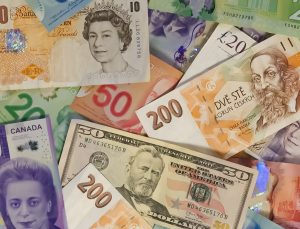The foreign exchange market, also known as the forex market, is the largest and most liquid financial market in the world. It is where currencies are traded 24 hours a day, five days a week, with an average daily turnover of over $5 trillion. The forex market is used by individuals, corporations, and governments to exchange currencies and manage international trade and investments.
So, how much does the forex market make a day? The answer to this question is not simple, as the forex market is a decentralized market where trading takes place over the counter (OTC). Unlike stock exchanges, there is no central clearinghouse or exchange where all trades are executed. Instead, market participants trade directly with each other or through electronic trading platforms.
The forex market is made up of multiple participants, including banks, hedge funds, retail traders, and central banks. These participants trade currencies for a variety of reasons, such as speculation, hedging, or international trade. Market participants can either buy or sell currencies, and the value of a currency is determined by supply and demand in the market.
The forex market is open 24 hours a day, five days a week, with trading starting on Sunday at 5:00 p.m. EST and ending on Friday at 4:00 p.m. EST. As a result, the forex market is very active, with trading taking place in different time zones around the world. The busiest trading sessions are the London and New York sessions, which overlap for a few hours during the day.
The daily turnover of the forex market varies depending on market conditions and trading activity. According to the Bank for International Settlements (BIS), the forex market’s daily turnover was $6.6 trillion in April 2019. This represents a 29% increase from the previous survey in 2016, which reported a daily turnover of $5.1 trillion.
The increase in daily turnover can be attributed to several factors, including the growth of electronic trading platforms, the increase in algorithmic trading, and the growing participation of retail traders. Electronic trading platforms have made it easier for traders to access the forex market, while algorithmic trading has increased efficiency and reduced trading costs.
Retail traders have also contributed to the increase in daily turnover, as more individuals have started trading currencies from the comfort of their homes. The rise of online brokers has made it easier for retail traders to participate in the forex market, and many brokers offer leverage, which allows traders to control a larger position with a smaller amount of capital.
Despite the high daily turnover of the forex market, it is important to note that not all trades result in a profit. In fact, according to a study by the Autorité des marchés financiers (AMF), 89% of retail traders lose money in the forex market. The study also found that the average loss per trader was €10,900.
In conclusion, the forex market is the largest and most liquid financial market in the world, with an average daily turnover of over $5 trillion. The daily turnover varies depending on market conditions and trading activity, and the rise of electronic trading platforms, algorithmic trading, and retail traders has contributed to the market’s growth. However, it is important to remember that trading in the forex market carries significant risks, and not all trades result in a profit.





